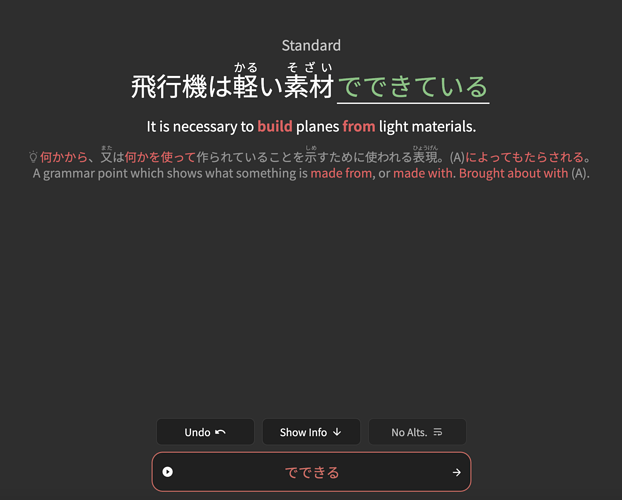made of, made from, produced from, come from
Structure
- Noun + で + できる
- Noun + から + できる
 できている → more specific statements
できている → more specific statements
できる → more general statements
[Used to express materials/ingredients something is made of]
[で is used when the material is obvious at first glance and から when it is not (the younger generation tends to use で much more often regardless)]



